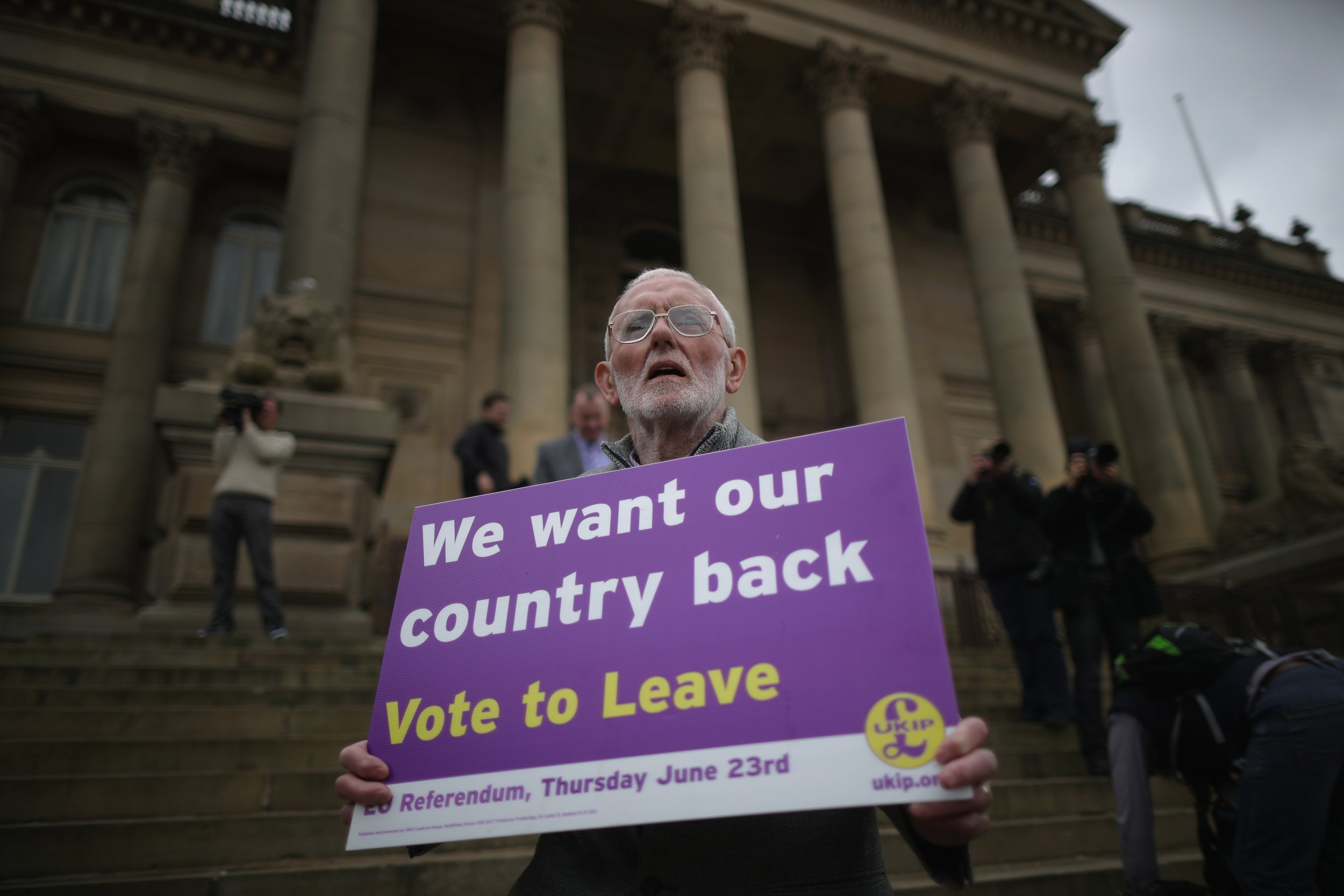
As dawn broke and the sun rose on June 24 at the Vote Leave HQ I felt dizzy, sick and confused, but not from all the beer and pizza I'd consumed over the six weeks prior to the EU referendum or the all night party the night of the vote became. The former U.K. cabinet minister and leading Brexiteer Michael Gove had just given a rousing victory speech and I left with some of the Vote Leave campaign team, through the back entrance to avoid the media scrum outside. The enormity of the referendum result started to hit us as we looked over the river to the Houses of Parliament basking in the morning sun. In Soho, I tucked into a full English breakfast in an empty restaurant. "Been a long night then?!" the waiter asked. I mentioned I'd just won a referendum. He wasn't sure how to react.
Six weeks on from the vote, and people's reactions have not changed for the better. Someone wrote "Fuck off, Goebbels," on my Facebook wall. Several "friends" deleted me. Nowhere are people angrier at the referendum result, and my part in it, than in the world of advertising, where I previously worked. Before I joined the campaign, the agency I worked for refused me unpaid leave. They told me it was crazy to be taking part in something that would "damage the industry," and many of my former contacts have refused to speak to me.
The advertising industry overwhelmingly backed Remain. The Remain campaign toured round four of the best agencies in the country, including those responsible for hugely popular adverts such as the John Lewis Christmas series, in search of killer ideas that would swing the argument. But those big agencies produced adverts that didn't connect with the wider British public. Now they've lost, they're puzzled. It's an advertiser's job to take a step back and understand the emotions that motivate people. But it seems like they gave in to emotion themselves.
Instead, maybe they should learn from the Leave campaign's success. One problem in the advertising world is that everyone wants to make adverts that other people in the industry like. Clever, funny, well shot adverts are regarded far more highly than those that actually do their job—for example making sales of a potato-based snack rise 1,000 percent. This was part of the failure by the agencies; they were making political posters and videos for each other, for a London-centric audience or young people. But most people aren't interested in politics and young people don't go out and vote. We realized that and responded in two ways.
Firstly, the digital team spent millions on online targeting and adverts to specific demographics. The adverts were eternally evolving, testing to see which worked. On polling day the team targeted search terms like "where's my nearest polling station" and other clever tricks were utilised throughout to get people to either enter their details or be shown Vote Leave messaging. We hammered the same points again and again and didn't take the bait the other side presented. We focused on familiar messaging including; take back control, spend £350 million on the NHS, fairer immigration, Turkey is joining the EU.
But we also realized the power of emotion. One of my films that centred on the NHS made someone cry in a focus group—we knew instantly the film was hitting a nerve. Emotion is the single most important element to the way someone casts their vote. People don't vote rationally, they vote on emotion but they don't realise it. The rationalization comes after, when they use the facts and figures we present to support their view.
On the film side we didn't have endless committees and meetings. I was left largely to my own devices to make my ideas come to life. Decision making was swift, the campaign director's office wasn't far from my desk, we'd discuss ideas and run with them.
The Leave campaign also evolved like the adverts we experimented with, immigration and Turkey's EU membership weren't priorities when I started, but when it kept coming up in focus groups we realised it was a huge issue, and we changed tack. As everyone realised "project fear", or even "project threat," wasn't getting the swing Remain needed, while our campaign ended up being perceived as "project hope."
Maybe one of the problems, in the end, is that all the advertising agencies and their employees live in London, which is devoid of any relation to the rest of the country. While beardy hipsters chill out in some swanky rooftop bar sipping on a superfood smoothie, Sally in the West Midlands is late picking up her kids from school, and has forgotten to get anything to eat for dinner. Her daughter has a cough and needs to see a doctor, but the only available appointment isn't until next week, and it's difficult for Sally to take time off work in order to take her daughter to the drop in surgery.
Sally's life is more real than that of the hipsters that populate the advertising world. But it's the job of the advertiser to understand Sally's world, even if they live a very different life.
This is one of the areas where the Remain campaign failed, so maybe now is the time for the advertising industry to emerge from their London bubble and begin to reconnect with the rest of the country.
Alexander Thompson is a film director who was head of film for Vote Leave.
Uncommon Knowledge
Newsweek is committed to challenging conventional wisdom and finding connections in the search for common ground.
Newsweek is committed to challenging conventional wisdom and finding connections in the search for common ground.
About the writer
To read how Newsweek uses AI as a newsroom tool, Click here.








